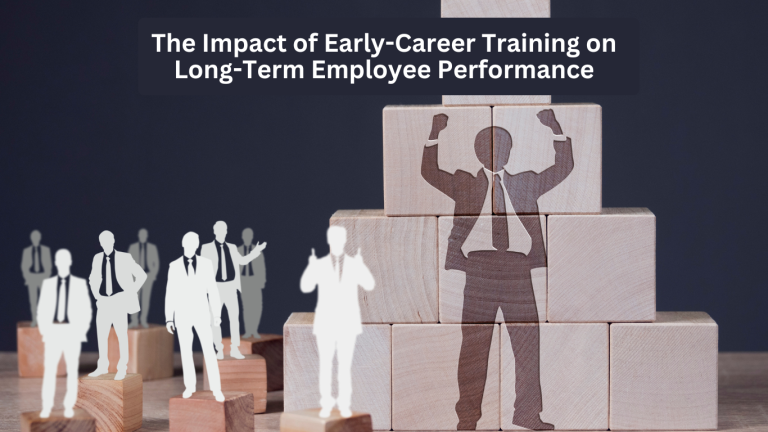Introduction
Early-career training plays a crucial role in shaping long-term employee performance. Many companies struggle with skill gaps in new hires, leading to increased training costs. Without early-career training, employees take longer to adapt to workplace expectations and responsibilities. Organizations that invest in early-career training see better employee engagement, retention, and productivity. This blog explores why companies should focus on structured early-career training to build a future-ready workforce.
1. Why Early-Career Training Matters
1. Bridging the Skill Gap in Fresh Graduates
Many fresh graduates lack industry-relevant skills despite having degrees. Early-career training ensures employees gain practical, job-specific knowledge that aligns with company needs.
2. Accelerating Workplace Adaptability
New hires often struggle to transition from academia to corporate settings. Training programs help them understand workplace expectations, culture, and processes, reducing the adjustment period.
3. Boosting Productivity from Day One
Employees with structured on-boarding and training programs become productive faster. Companies that invest in skill-based training reduce the time required for new hires to contribute effectively.
2. How Early-Career Training Impacts Long-Term Employee Performance
1. Enhancing Job Satisfaction & Employee Confidence
Employees who receive proper training feel more confident in their roles. Increased confidence leads to higher job satisfaction, reducing stress and performance anxiety.
2. Improving Retention & Reducing Turnover
Employees with access to training are more likely to stay with their company. High turnover costs can be reduced with structured early-career training programs that align employee expectations with company goals.
3. Building Future Leaders & Internal Talent Pipelines
Companies that train employees early can identify high-potential individuals and groom them for leadership positions. This reduces the need for external hiring and fosters internal career growth.
4. Encouraging a Culture of Continuous Learning
Organizations that invest in training create a culture of lifelong learning. Employees stay updated with industry trends and develop new skills that keep businesses competitive.
3. Best Practices for Implementing Effective Training
1. Develop Structured Onboarding Programs
A well-designed onboarding process helps employees integrate smoothly into the company. Training should include interactive sessions, mentorship, and hands-on projects
2. Offer Industry-Specific Skill Development
Training should focus on practical industry skills rather than just theoretical knowledge. Companies can collaborate with platforms like Qollabb to provide live industry project
3. Use Mentorship & Buddy Programs
Assigning mentors helps fresh employees navigate their early career stages. Peer learning and feedback sessions boost confidence and create a collaborative work environment.
4. Leverage Digital & Hybrid Learning Models
Blended learning, including online courses and real-world projects, ensures flexibility. AI-driven learning platforms can personalize training based on individual employee need
5. Encourage Real-World Projects & Internships
Live industry projects enhance problem-solving and critical-thinking skills. Internships provide hands-on experience that helps employees transition smoothly into full-time roles
How Qollabb Helps Companies Build Strong Early-Career Training Programs
1 Providing Access to Real-World Projects
Qollabb connects companies with fresh talent through live industry projects. This enables students and early-career professionals to gain hands-on experience before full-time hiring
2. Offering Internship-to-Hiring Pipelines
Companies can use Qollabb to offer structured internships that transition into full-time roles. This reduces hiring risks and improves employee readiness.
3. Connecting Employers with Job-Ready Candidates
Qollabb’s model ensures fresh graduates have industry exposure before joining the workforce. This reduces training costs for employers and shortens onboarding time.
4. Facilitating Mentorship & Industry Collaboration
Qollabb enables direct engagement between industry professionals and early-career talent. Mentorship programs and industry collaborations help bridge the skills gap effectively
The Future of Early-Career Training & Employee Performance
1 The rise of AI and automation will increase the demand for continuous learning.
As industries evolve, employees will need to up skill regularly to stay relevant. Companies must integrate ongoing learning programs into their training models.
2 Companies will shift from traditional classroom training to experiential learning models.
Live projects, real-world case studies, and simulations will become key components of employee training programs.
3 Industry-academia collaborations will play a bigger role in preparing job-ready talent.
Companies will actively partner with educational institutions and edtech platforms to train future employees while they are still studying.
4 Organizations that invest in employee development will outperform competitors in retention and productivity.
Training programs create a skilled, engaged workforce that drives long-term business success. Companies that fail to invest in employee development risk higher turnover and lower productivity.
Conclusion: Investing in Early-Career Training for Long-Term Success
Early-career training benefits both employees and companies by improving productivity, retention, and engagement. Companies that focus on structured training programs create a future-ready workforce. Skill-based hiring and experiential learning will define the next phase of talent acquisition.
Qollabb helps businesses find and train industry-ready professionals through real-world projects and internships.
Partner with Qollabb today to build a stronger workforce for the future!





